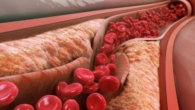
Obesity was called a harbinger of an incurable disease
< /p>
Insulin is an important hormone, the production of which allows the body to use glucose for energy. It takes glucose from the blood to store it and use it as fuel. It is this function of insulin that is necessary for the absorption of sweets.

When consuming a large amount of sweets, the blood sugar level increases. If this happens for a long time, then the increased consumption of sugar will bring serious damage to the kidneys and blood vessels. Cells stop responding to insulin and absorb glucose from the blood. This condition is called insulin resistance and leads to the development of a dangerous disease – type 2 diabetes. People who are overweight are especially prone to it.
Researchers have found that the immune system of the intestines in people who are obese participates in a series of reactions that cause cells to stop responding to insulin. Food with a high fat content provokes a shift in the work of the intestine – dysbiosis, which interacts with the immune system of the intestine.
Scientists' experiments have shown that the antibody immunoglobulin A (IgA) also affects insulin resistance. With obesity, its production decreases, which provokes the growth of intestinal bacteria that cause inflammation. Anti-inflammatory proteins can suppress insulin signaling, and cells stop absorbing glucose. Such a series of events leads to an uncontrolled increase in blood sugar.
A proper diet helps to avoid the development of obesity and diabetes. Reducing fatty foods in the diet will help to avoid the multiplication of intestinal bacteria that cause chronic diseases.









Leave a Reply